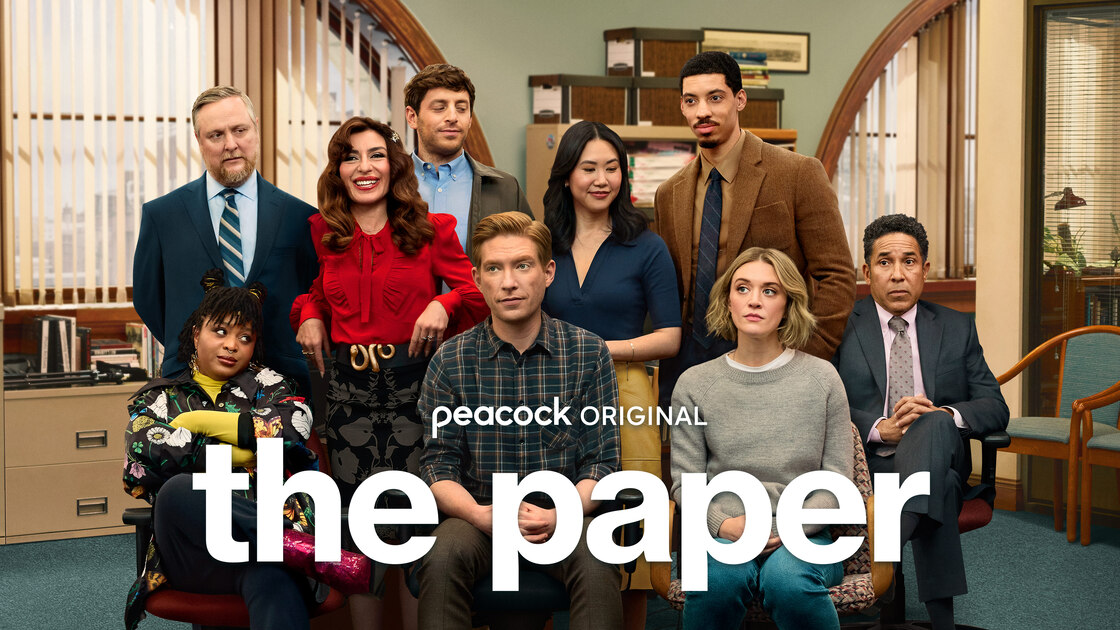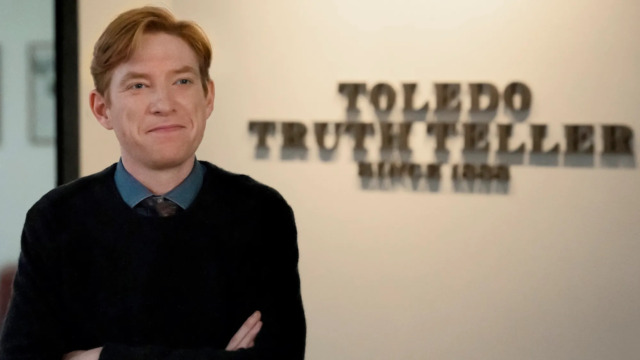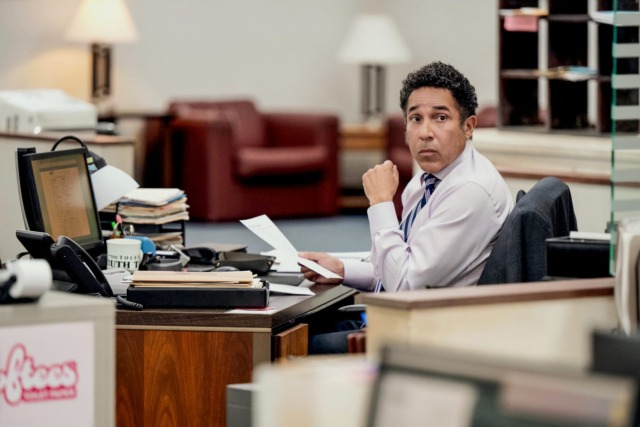‘The Paper’ Season 1: A Fresh Take on Mockumentary Comedy

There’s something almost comforting about going back into a mockumentary world of The Office universe. Just like in that series, people are awkward, meaning well for everybody, and just a little ridiculous, like always. The Paper, Peacock’s new spin-off of The Office, was created by Greg Daniels and Michael Koman. Just like The Office, it’s a show that wants to bring us back to a familiar style of storytelling, camera work, gag scenes, and all that we loved The Office for, but in an entirely new environment.
The Paper follows a struggling Midwestern newspaper in Toledo, Ohio. They are trying to stay relevant in the modern world where everything is digitalized. What grabbed me right away wasn’t just the similar setup or funny jokes, but the similar warmth and feeling of a family that is created thanks to the creation of the show. And this is what separates The Paper from being just another mockumentary sitcom.
The Paper season 1: the story
The Toledo Truth Teller is the name of the new company that replaces Dunder Mifflin Scranton as “the company we watch” in The Paper. The editor-in-chief is Ned Sampson (Domhnall Gleeson), who is the kind of character who could easily have been insufferable in the wrong hands, but not like Michael Scott (Steve Carell). He is overly enthusiastic, constantly convinced that his new ideas will save the newsroom, and he is just naïve enough to believe that people will come along with him if he repeats himself often enough. His optimism will survive no matter what. Even in a newsroom where the workers’ pay is close to nothing, readers are almost nonexistent, and nobody can agree on whether the paper should aim for clickbait or for what’s right to get viewers.
The counterpart to Ned being a “new version of Michael Scott” is Esmeralda Grand (Sabrina Impacciatore). She has a more realistic take on life, as she has been through enough failed “rebranding” campaigns and morale-boosting speeches in her life to know that good intentions rarely pay the bills. She is more of a “think about what you do and how to make money, instead of doing something that won’t benefit anyone” type of person. Their dynamic is one of the comedic puns of the series. With Ned pushing forward with plans that are half-thought-out and with Esmeralda stopping him with smart remarks and just enough wisdom to prove that she cares but won’t do anything about it.

The show doesn’t go for big, emotional arcs, but instead it tries to connect smaller stories that feel both absurd and plausible, so there are fewer fiction elements than there can be. One week, the paper is trying to cover a dating app scam, and the next, they’re awkwardly promoting a bizarre advertiser product because the staff needs the money. And even to be weirder about it, there is an episode in which they attempt to interview a cult leader so they can have a big headline to use in the paper. These storylines give the characters plenty of space to shine. The strongest moments of the story this season are those in which the humor scenes are natural out of the situation, instead of being forced as a punchline from the first seconds of the episode.
The way The Paper tries to capture the essence of a dying industry without turning the show into a tragedy is admirable. Journalism is changing, and it has been for a while now. The Toledo Truth Teller paper is clearly functioning on borrowed time and money. There’s a noticeable portion of comedy, respect, and emotion in watching all those people trying to save a ship that is sinking and may be almost certainly beyond recovery. But there’s also respect in showing how much it matters to them. That balance between laughter and empathy is where The Paper really shines. Of course, it borrows a lot of empathy and comedic techniques from The Office, but they are not that noticeable, and they work really great in their own way.
This new spinoff’s connections to The Office
After watching the first episode, you can’t discuss The Paper without mentioning its connection to The Office. From the beginning, the show solidifies itself as part of the same universe. The documentary crew is the same one that filmed the employees of Dunder Mifflin, which provides an in-universe reason for the camera style and even a bit of meta-commentary about why these stories are being told. There are subtle nods that fans will catch immediately, like a reference to Scranton’s fame after the documentary aired or Oscar Martinez (Oscar Nunez) appearing in a recurring role as an accountant tied to the corporate side of the paper.

The Paper is careful not to rely on nostalgia and being connected to The Office. Obviously, Daniels and Koman want the show to stand on its own. But, they give people what they loved back in the day in a more modern take, and it is worth mentioning. The Office references are not appearing every five seconds. There is just enough of them to make you smile and feel nostalgic, but not so much that new viewers would feel left out and confused just because they have not seen The Office. The style of humor is similar, yes, but changing it to show the local journalism, and not a local paper company, provides a whole new playground of absurdity and comedy.
The Paper continues the exploration of certain themes from The Office, but the stakes are bigger and have bigger consequences. A newspaper company might not have mattered to the outside world, but journalism, even a local one, is crucial and matters to even more people than you know. In that way, the show feels like a natural evolution of what began with The Office, even though it’s telling a different kind of story.
Final thoughts on The Paper season 1
After finishing the first season of The Paper, I was left with the kind of feeling you don’t often get from comedies or sitcoms. Just like with The Office, I immediately started to care about the characters and the company. I laughed plenty, but more importantly, I found myself genuinely invested in whether this tiny newsroom will survive or will they discover something to give them fame.
Some episodes sometimes have moments that drag for some time or have jokes that sometimes feel recycled, but it works. I’ve found that even when the humor wasn’t landing perfectly, the heart of the show carried it through, and all the emotions and characters being real helped a lot. There’s something very human about watching a group of people struggle together in an impossible situation to make a dream come true. If you loved The Office, you’ll find a lot to enjoy here. For me, the series hit that sweet spot by bringing back the familiar comfort of going back to that universe I love and telling a new, inspiring story.
In the end, The Paper is more than just another TV sitcom to get a laugh from. It’s a show with a lot of heart. In many scenes, it gives you a different perspective that makes it worth watching even if you’ve never seen The Office. I liked it a lot, actually. Mostly because it reminded me that comedy, just like in The Office, doesn’t have to come from big stakes or rolling jokes. But mostly, it comes from being human, and that’s as real as it can get.
Also check out Fantastic Fest 2025: Bugonia is a Perfectly Weird Satire


